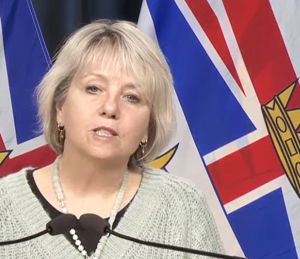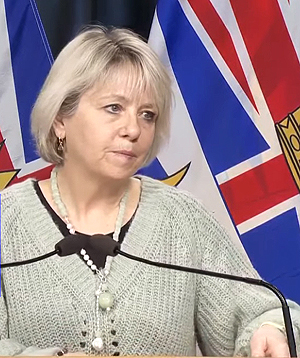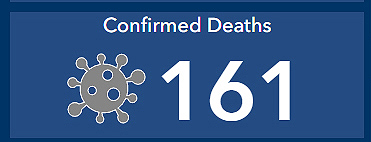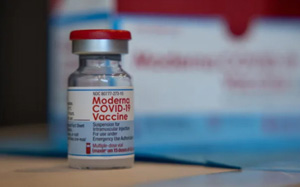
Friday January 21, 2022 | VICTORIA, BC [Updated 2:20 pm]
by Mary P Brooke, B.Sc. | Island Social Trends
It might seem like COVID is being treated endemically in BC (like getting the flu or having a cold). But Provincial Health Officer Dr Bonnie Henry disputed that today. It’s still a pandemic, she told media during her livestreamed session at 10 am today along with Health Minister Adrian Dix.
“We’re not in a place where it’s endemic right now,” Dr Henry specifically noted.
Livestreamed session:

Dr Henry was in Victoria, and Minister Dix was in Vancouver. Their COVID livestreams — going on now for just about two years (the first one was at the end of January 2020) are carried on Twitter, Facebook and YouTube (though those didn’t seem to be working today), as well as on CPAC and Global TV.
Highly transmissible, but less transmission after about 5 days:
It’s just that public health can’t stay on top of contact tracing — something Dr Henry opened with at the beginning of her remarks today. So she really has no choice but to leave decisions up to individuals.
As well, resources for PCR testing are at capacity limits (that became the case a few weeks ago).
The Omicron variant still causing infection, including serious infection, she pointed out today.
“Omicron is causing less severe illness in most people but is infecting more people,” explained BC’s top doctor. “We’re seeing an impact in our hospitals right now,” Dr Henry said today.
She called this “a new and different wave of the pandemic”. Most people won’t need testing, but will need information to manage things when COVID infection is acquired, she said.
“Symptoms can last longer than 10 days and people can transmit (the virus),” said Dr Henry. But she added: “The risk to transmit can go down after five to six days”.
Deaths still continue under Omicron:
Omicron is still leading to serious illness and eath.
Looking at BC CDC stats for Dec 1/21 to Jan 20/22 (51 days) there were 83 more deaths directly attributed to COVID across BC (3.4% of total deaths pandemic-to-date).

In Island Health there were 21 more deaths in that period (14.7% of Vancouver Island COVID deaths so far).
The Omicron variant tends not to go as deep into the lungs (so there seems to be less need for intubation to support breathing, as was the case with earlier variants). Omicron tends to find its home in the nasal cavity and upper airways (hence its ability to transmit more readily).
So the deaths resulting from the Omicron infection are likely, in many cases, related more to exacerbation of underlying health conditions (like heart, lung, diabetes, kidney, etc) as well as overall body inflammation (as seen in the MISC post-infection response in children which can include acute gastrointestinal symptoms, hypotension, and myocardial dysfunction).
Not as serious in children:
As Dr Henry often says, thankfully this infection does not seem to be overly serious for children. But many children still remain unvaccinated or undervaccinated.
Immunization still the best tool:

“We’re going to take all the steps to increase levels of immunization across the system,” said Health Minister Dix today.
Public health is encouraging everyone to still use all the tools against the spread of COVID-19 during this Omicron wave, including keeping physical distance, wearing a mask, hand hygiene, and staying home if not feeling well.
Dix suggested masks are smart for the long-term during this continuing pandemic, noting that when he goes to the grocery store he has not — for months now — seen anyone not wearing a mask.
Immunization levels:
As of yesterday (BC CDC stats on January 20, 2022) only 36.7 percent of the booster-eligible population (i.e. age 12 years and older) have received three shots (i.e. primary course of two doses of COVID-19 vaccine, plus a third or booster dose).
Three shots are now considered necessary as the population is forced to adapt to the Omicron variant.
| Vaccine Type | 1st Dose | 2nd Dose | 3rd Dose (booster) | TOTAL Administered Pandemic to Date | New Since Last Report |
| All | 731,854 | 684,271 | 331,454 | 1,747,579 | 11,127 |
| AstraZeneca | 24,165 | 11,854 | 15 | 36,034 | 32 |
| Moderna | 186,526 | 215,991 | 305,728 | 705,245 | 9,931 |
| Pfizer (adult) | 494,421 | 456,317 | 25,711 | 976,449 | 1,138 |
| Pfizer (pediatric) | 29,743 | 109 | 0 | 29,851 | 26 |
COVID-19 Vaccination Doses Administered in Island Health (Vancouver Island), at January 20, 2022, pandemic to date. [BC Centre for Disease Control stats | Island Social Trends table]
Children age 5 to 11 years only became eligible for COVID vaccination on November 29, 2021. The immunization rate for that age group is steady, but lower than public health is saying they want to see. Looking at the per-day vaccination administration stats, it appears that families are choosing to get children’s vaccinations done on weekends, which will naturally push the calendar forward, week by week.
Weekday vaccinations are more convenient for adults, especially older adults.
Most booster shots are being administered with the Moderna mRNA vaccine (50 mcg for the booster, instead of the 100 mcg level for shots one and two) and not the still highly popular Pfizer mRNA vaccine was 30 mcg for first and second doses, and is still 30 mcg for the booster dose or third shot.





